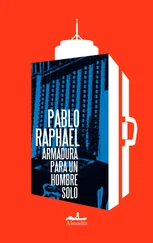‘This will be my workbench!’ he announced happily to Magdalena.
‘It’s filthy,’ she said.
‘I’ll clean it. Don’t worry.’
‘There isn’t much room here. How much more junk will you bring?’
He sighed gravely.
‘Please, Magda. I need to do this.’
‘I don’t know what’s happening to the man I married.’
Ulrich took her hands and comforted her. She studied him for a long time, until tenderness flowed back into her cheeks. She put her arms round him and inhaled from his hair.
‘I don’t like to see you living below yourself. You need a plan, Ulrich. Right now I don’t think you have one. Soon all your intelligence will be accounted for in Ivan Stefanov’s books, and you will have none left for yourself.’
He looked at the floor.
‘Mr Stefanov is a decent man. I will talk to him about the salary. He is not a bad man, and I’m comfortable there.’
She put her hands over his ears and peered into his eyes as if they were dark shafts in the earth. She held his head tight and shook it back and forth.
‘Comfortable?’ she said, shaking him. ‘Comfortable? Are you comfortable now?’
And she went on shaking him a bit too long.They attended a lavish party at the house of her parents, who were celebrating their wedding anniversary. The preparations had been going on for a month. Ulrich surprised Magdalena with a new dress, and that night she was joyful among so many people she knew. Her father was tall and jovial, and he put his arm across Ulrich’s shoulders and introduced him around, exaggerating his career: He has a lucrative line in leather .
At home afterwards, Magdalena seemed unusually subdued. They went to bed, but neither could sleep, and they lay side by side, looking at the ceiling.
He said,
‘Why don’t you play the piano any more?’
She sighed with contempt, and turned her back.
Ulrich drifted into sleep. He dreamed of a stormy journey on a ship full of pigs, and a shipwreck, and standing tiptoe on the summit of the mountain of drowned, sunken hogs to keep his mouth above water. When he came to, later in the night, she was standing at the window.
‘What’s wrong?’ he asked.
She scanned the street outside, mournfully, and said,
‘I wish someone would come to take me away.’
He bought some supplies for his laboratory. He lined the bottles up on his bench while Magdalena was out.
He was polishing his shoes in the kitchen when she came in, brandishing a bottle embossed with a skull and crossbones. She cried What’s this ? and, before he could warn her, she hurled it against the wall. He leapt at her as it smoked, and ran her out of the room.
‘What are you doing?’ he cried madly. ‘What are you doing?’
He was shaking with emotion.
‘That’s sulphuric acid. You could have killed yourself.’
She snarled at him,
‘And you bring it into the house when we have a small boy running around?’
In her rage she twirled her fingers at her ears to show his insanity:
‘You are crazy, crazy! Why don’t you just throw him into acid right away? Be done with it!’
She ran away, inconsolable. While Ulrich looked for something to cover his face while he cleaned up the acid, he heard the thrum of bass strings as Magdalena kicked the piano in the other room.
One day, Ulrich came home to find that Magdalena had moved out with their son. Her family closed around her, and Ulrich could not get to see either of them after that.
Their boy was nearly three years old, and Ulrich was used to taking him out for long weekend walks. He would tell him stories of the seasons, and his son would ask ‘Why?’ to every reason, to hear whether the world’s explanation had an end. Ulrich had found peace and fulfilment in simple fatherhood, and now he suffered actual physical pain at his son’s absence. He woke up in the night with the fantasy that the boy was crying in the room. In the morning he leaned into the abandoned cradle to inhale the vestiges of his scent.
Some time later, he read in a book of a Japanese word that described the unique pleasure of sleeping next to an infant. It spoke of a sensuality that was not erotic, but indecent, nevertheless, in its fervour. It captured the feeling of what tormented him so, in those days, by its absence.
Nowadays, that word dances just beyond his grasp.
Later on, Magdalena divorced him and married a Bible scholar from a well-to-do Protestant family. Ulrich went through extremes, and did regrettable things. He drank on his own and made a nuisance of himself in bars.
One night he went to the big house on Krakra Street where his wife and son were now shut up. It was late, and he was incoherent with drink. There were no people in the street, though a dog pestered him, trying obstinately to lick his hand. A light was burning in an upstairs window. There was a route up to the window by the roof of the outhouse.
In his stupor, he was intent on clear thought, and he climbed with excruciating slowness, monitoring the movements of each limb so it did not escape and set off the cymbals of the night. Silence returned his favours, and finally he crouched undetected beneath the lit window, and could lift his head to the view.
Ulrich had heard that Protestants kept their windows uncurtained in order to prove that nothing furtive ever happened inside; and somewhere he believed that they were truly unacquainted with secrecy and urge. Even at this hour, he imagined he might fall upon some scene of decorous domesticity: novel-reading, perhaps, or symmetrical bedtime prayer.
But when he looked inside, the man was fully inside her with his shirt still on, her crying More! , which Ulrich could hear through the glass. The room was scattered with objects he dimly recognised, though his attention was not there: for her mobile breasts shone under the electric lamp, her legs were open, and her face was transported no differently than once for him. The body pushing into her was thin and had a repulsive smoothness to it, as if it were without hair. As he squatted on the roof, his chin just clear of the windowsill, the sweat gushed from Ulrich’s armpits, and his clothes stuck to his back. While the preacher’s fishy foot soles flapped with his exertions, Ulrich became extravagantly aroused by the sight of Magdalena displayed luxuriant, so that he could not tear himself away even as the evangelist flurried his backside to a clench, and let himself collapse upon her, spent.
So it was that Ulrich’s wide-eyed, jerking face, lit up by the room’s blaze like a glossy mask in the night, still bobbed at the window when Magdalena’s gaze came to rest there, and they locked eyes for a strange duration.
No longer fearing discovery, he gave up climbing down and fell most of the way. He lay in the street for a while, his limbs gliding like the after-movements of a dead insect. When he pulled himself up, he saw Magdalena silhouetted in the front door, newly wrapped in a dressing gown. She beckoned to him.
She put her arms around him and clasped him to her, still ripe from the other man, and he let himself be held until she pulled herself away and shut the front door against him.
It was not long afterwards that Magdalena departed for America. Ulrich went to the railway station to watch the family board the train. Her husband extended his hand to cut the ceremony short, and Ulrich stared at its long thin fingers, which reminded him unpleasantly of those kicking feet. He felt vaguely nauseous at the thickness of the man’s new wedding band and the neatness with which he clipped his fingernails, but he took the hand and shook it. Magdalena looked him in the eye, and he mumbled some empty words of good fortune, to which she nodded.
Читать дальше
Конец ознакомительного отрывка
Купить книгу












